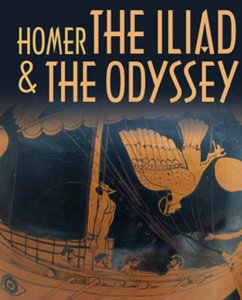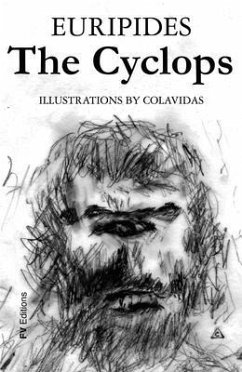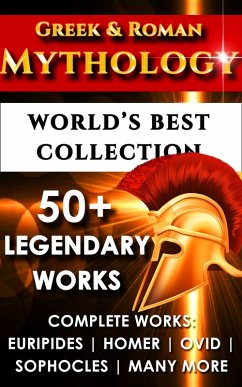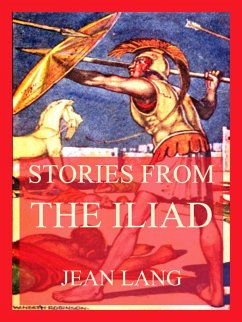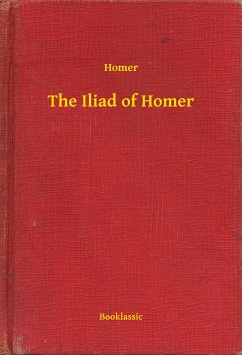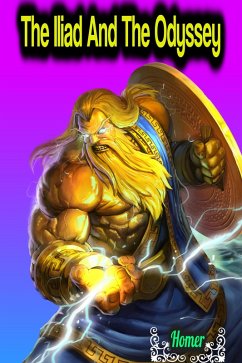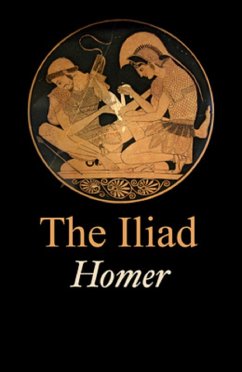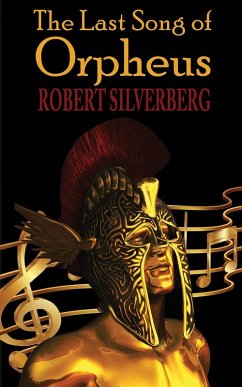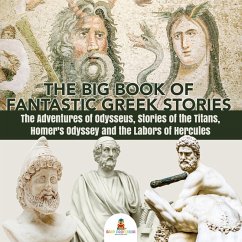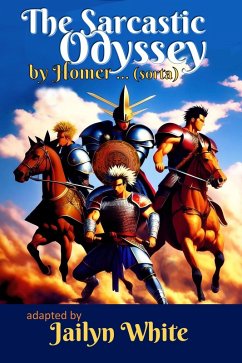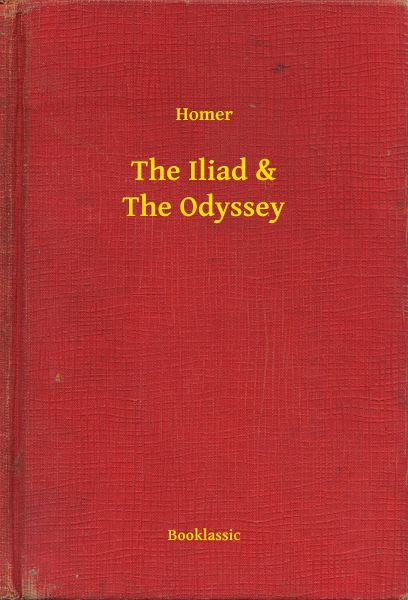
The Iliad & The Odyssey (eBook, ePUB)

PAYBACK Punkte
0 °P sammeln!
While Homer's existence as a historical person is still a topic of debate, the writings attributed to the name have made their mark not only on Greek history and literature, but upon western civilization itself. Homer's epic poems, The Iliad and The Odyssey, laid the foundation upon which Ancient Greece developed not only its culture, but its societal values, religious beliefs, and practice of warfare as well.This publication features the Samuel Butler translation, and while it strays from the poetic style reproduced by more well known translators like Robert Fagles and Robert Fitzgerald, the ...
While Homer's existence as a historical person is still a topic of debate, the writings attributed to the name have made their mark not only on Greek history and literature, but upon western civilization itself. Homer's epic poems, The Iliad and The Odyssey, laid the foundation upon which Ancient Greece developed not only its culture, but its societal values, religious beliefs, and practice of warfare as well.
This publication features the Samuel Butler translation, and while it strays from the poetic style reproduced by more well known translators like Robert Fagles and Robert Fitzgerald, the vision of the epics as if they were prose found in modern novels take their best form under Butler's most capable hand.
The source text reproduced for this publication is derived from the online library of the University of Adelaide in South Australia under the freedoms specified by a Creative Commons License (http://creativecommons.org/licenses/by-nc-sa/2.5/au/).
This publication features the Samuel Butler translation, and while it strays from the poetic style reproduced by more well known translators like Robert Fagles and Robert Fitzgerald, the vision of the epics as if they were prose found in modern novels take their best form under Butler's most capable hand.
The source text reproduced for this publication is derived from the online library of the University of Adelaide in South Australia under the freedoms specified by a Creative Commons License (http://creativecommons.org/licenses/by-nc-sa/2.5/au/).
Dieser Download kann aus rechtlichen Gründen nur mit Rechnungsadresse in A, B, BG, CY, CZ, D, DK, EW, E, FIN, F, GR, H, IRL, I, LT, L, LR, M, NL, PL, P, R, S, SLO, SK ausgeliefert werden.




